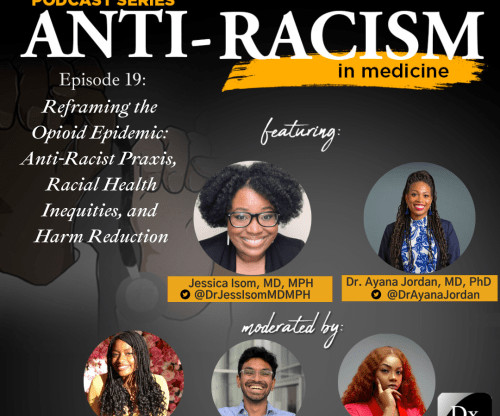Episode 275: Anti-Racism in Medicine Series – Episode 19 – Reframing the Opioid Epidemic: Anti-Racist Praxis, Racial Health Inequities, and Harm Reduction
The Clinical Problem Solvers
FEBRUARY 8, 2023
Between 2007 – 2019, Black individuals experienced a higher death rate for opioid overdose deaths than any other racial or ethnic group. These narratives have vilified individuals who would benefit from comprehensive, person-centered substance use treatment, rather than incarceration and other adverse harms.












Let's personalize your content